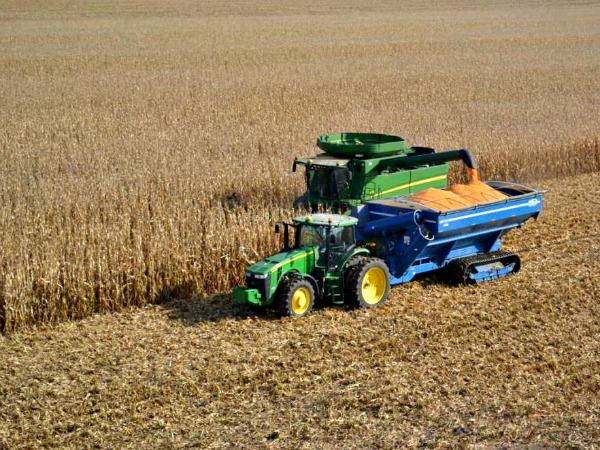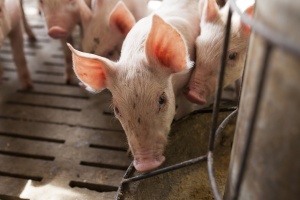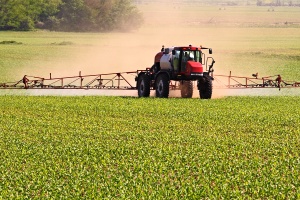GMO 101: The View From Our Farm
More and more questions are being asked about GMOs and their safety. Today, I’m answering some of the questions I get as an Illinois farmer.
What are GMOs, and why do we plant them on our farm?
Some would argue gene modification has been happening for centuries, resulting in seedless watermelons, seedless grapes and chocolate cherry tomatoes. Genetically modified organisms, or GMOs, are plants that contain a single gene from another organism so that the plant can do something it couldn’t before.
If you’ve got a garden in your backyard, you probably know how easy it is for pests to damage your fruits or vegetables. It’s the same with our farm. Prior to using a genetically modified seed, one insect, the European corn borer, caused serious losses for corn farmers. Plant scientists found a naturally occurring soil bacterium (Bt -bacillus thuringiensis) that is toxic to the corn borer, selected the gene and inserted it into corn DNA. Now, instead of spraying the crop with a chemical multiple times, the plants fight the bug themselves. Organic corn farmers who don’t use GMO seeds can also have problems with the corn borer. They can use an approved Bt insecticide on their farms. The same result is achieved, but using different farming methods.
We also plant non-genetically modified corn and soybean seeds. Planting a variety of hybrids and using a variety of farming methods like tilling the soil in different ways, crop rotation, weather analysis and weed control by simply mowing grass on the outer edge of a field can help control the number of pests. Pests, including insects, weeds and disease, have been evolving for years. With or without genetically modified seeds and pesticides, they will continue to evolve. So farmers must ready their tool belt, and genetically modified seeds are one of many tools we’re using today.
Are we told what to plant by “BIG AG”?
We have never been forced to plant, forced to buy, or forced to do anything on our farm. Farmers have choices, so consumer can have choices too.
I am a fourth generation farmer and my husband is the seventh generation in his family. In America, 94 percent of farms and ranches are still owned and operated by families. To say that agriculture is in our genes (and jeans) is an understatement. We take exception to the insinuation that we don’t have a choice as to how we farm. Decision-making on our farm is a serious task. We rely on generational, experiential and educational knowledge to make decisions for our farm. We spend an inordinate amount of time reviewing, researching, meeting, reading, talking and listening to experts on seeds, equipment, pest control, soil, water, marketing, etc. The evidence was the pile of seed catalogs (not unlike garden seed catalogs) that sat on my desk this winter.
Are GMOs safe?
Yes. The World Health Association, the Food & Agriculture Organization of the United Nations, the American Medical Association, the European Food Safety Authority and the National Academy of Sciences, to name a few, have all deemed ingredients derived from a genetically modified crop are as safe as ingredients derived from crops raised in another manner.
On average, a genetically modified seed takes almost 15 years to come to market because of the safety and regulatory measures mandated by the USDA, EPA and FDA.
I found this article from motherjones.com, No GMOs Won’t Harm Your Health, to be very well-written without the emotional turmoil that comes with a GMO discussion.
For further information about GMOs and other farming and food topics, I’d encourage you to explore watchusgrow.org to find out more about how real moms are connecting with Illinois farmers to get their questions and concerns answered.











0 Comments